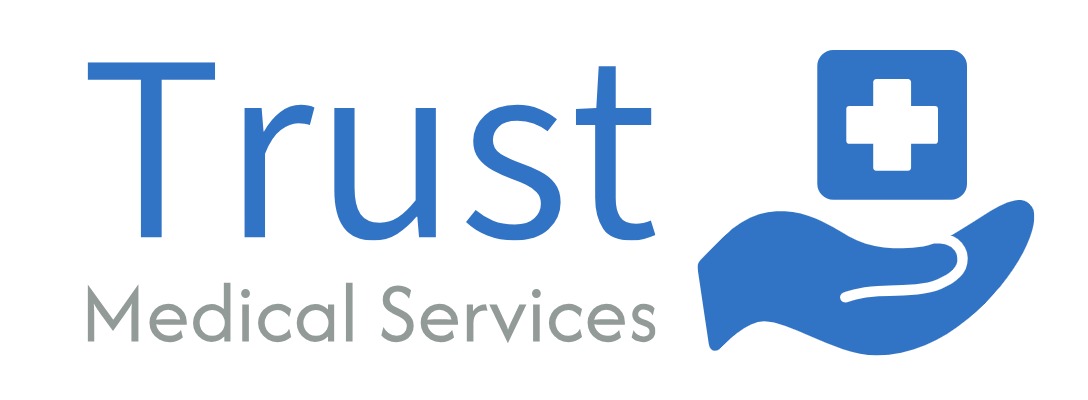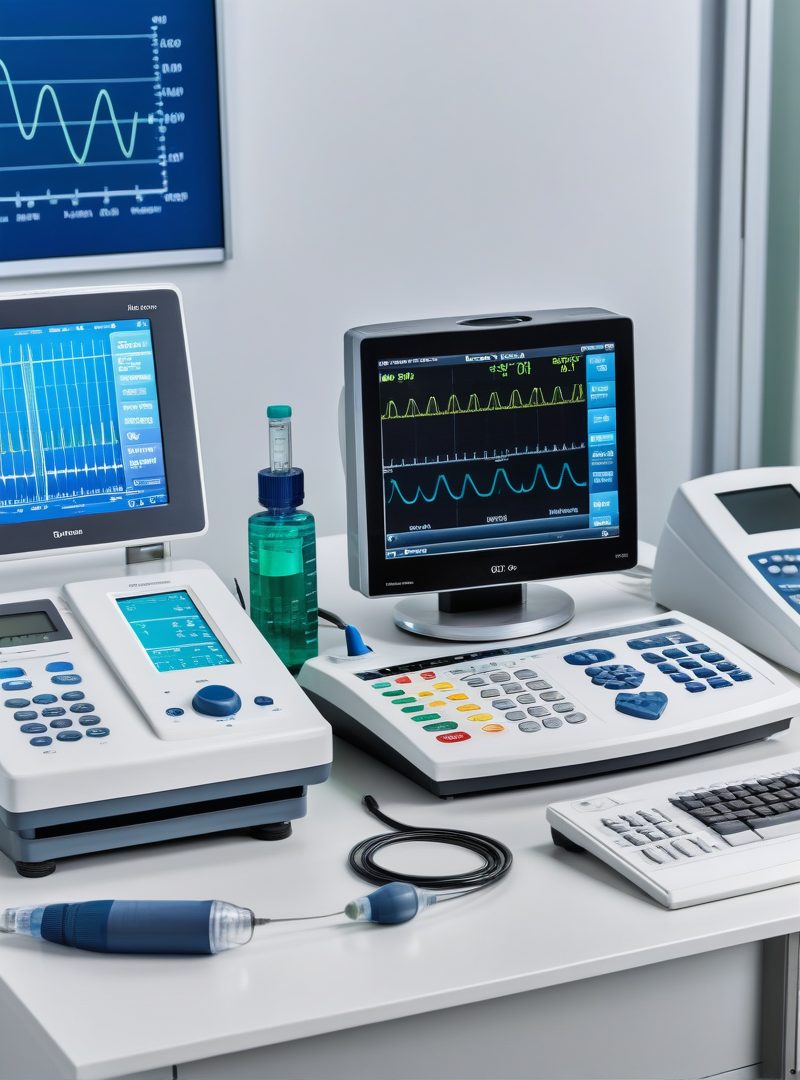Your Health, Our Priority
Comprehensive Aeromedical Examinations
Trust Medical Services is dedicated to ensuring the highest standards of health and safety for aviation professionals through meticulous medical assessments.
Our Specialized Services
Aeromedical Examination Services
UK CAA Class 2 Initial (incl ECG)
These are essential for aviation professionals to comply with health regulations. At Trust Medical Services, we prioritise your well-being during this evaluation to ensure your cardiovascular fitness and safety in the skies.
Read More Info
UK CAA Class 2 Initial Medical examinations include a mandatory electrocardiogram, or ECG, for pilots seeking a Private Pilots Licence. The initial Class 2 medical requires a standard 12-lead resting ECG along with a report. Following this, pilots must have additional ECGs at their first examination after turning 40 and again after reaching 50 years of age. Once a pilot is over 50, ECGs are required every two years. Along with the ECG, the medical examination will assess medical history, physical condition, hearing ability, lung function, and urine analysis. The timing of these Class 2 medical examinations varies by age: those under 40 should be examined every five years, individuals aged 40 to 49 every two years, and those over 50 must be evaluated annually. These medical checks are essential to confirm that pilots are physically fit to perform their responsibilities, ensuring the safety of passengers and crew.
UK CAA Class 2 Revalidation/Renewal
Weoffer tailored support for your UK CAA Class 2 revalidation and renewal. Our expert services ensure your health meets all regulations and requirements for a seamless process, so you can fly safely with confidence.
Read More Info
UK CAA Class 2 Revalidation/Renewal UK CAA Class
Revalidation or Renewal Medical examination To revalidate or renew a UK CAA Class 2 medical certificate, you can: Undergo a renewal examination at an Aeromedical Centre (AeMC) Make an appointment with an Aeromedical Examiner (AME) The validity of a UK CAA Class 2 medical certificate depends on your age: Under 40: Valid for 60 months 40–50: Valid for 24 months 50 or over: Valid for 12 months You should revalidate your certificate within 45 days of its expiry date. If your certificate has expired for more than two years, the examiner will review your aero-medical records before the renewal exam. If it has expired for more than five years, you’ll need to go through the same process as for a new certificate. The medical examination includes: A full physical medical exam Eye tests An electrocardiogram (ECG) if required Spirometry to assess lung function An audiogram if required A urine test A blood test to check lipids if required You should bring the following documents to your medical appointment: Signed client consent form Photo identification Completed but unsigned application forms Last medical certificate, even if expired Most recent spectacles or contact lenses prescription and spectacles if these are worn
UK CAA LAPL Initial / Renewal
The LAPL licence is an alternative to the EASA Private Pilots Licence (PPL). The UK Civil Aviation Authority (CAA) requires a full medical assessment before your medical certificate can be issued. Get in touch with Trust Medical today.
Read More Info
This new licence was introduced in September of 2012 when the new EASA regulations came into force. Both the CAA and EASA continue to support this licence. It is the least demanding in terms of medical requirements. If you satisfy the DVLA class 2 (HGV) medical standards then it is likely that there will be no problems issuing one of these to you. LAPL is designed for individuals who want to enjoy the freedom of flying without the extended commitment of a full Private Pilot License (PPL), the LAPL provides a more accessible and cost-effective route to becoming a pilot.
How does it differ from class 2 licence? If you fancy flying outside Europe, flying larger more complex types (over 2000 kg), carrying more than three passengers and flying on instruments with an instrument rating then you will not be able to do this with an LAPL. This licence is valid for 5 years if you are under the age of 40 and for 2 years thereafter. It does not require any additional tests, in particular an ECG will never be needed
UK CAA Cabin Crew Medical
The UK CAA Cabin Crew Health Assessments ensure cabin crew members meet essential health and fitness standards, evaluating their physical and mental well-being to confirm their stamina for aviation demands. At Trust Medical Services, we provide efficient health assessments tailored for cabin crew applicants, supporting a safe entry into a rewarding aviation career.
Read More Info
The UK CAA requires an initial medical assessment for cabin crew members to ensure their capability to perform duties safely and efficiently. These assessments encompass a thorough review of the applicant’s medical history and a physical examination that includes eyesight, cardiovascular, respiratory, musculoskeletal, and ear, nose and throat evaluations. Additional tests may consist of an electrocardiogram, lung function test, haemoglobin blood test, urine test, saliva drug and breath alcohol testing, audiogram, and spirometry. The entire examination can last up to four hours, with appointments available either in person or virtually as determined by the CAA medical assessor or consultant. Initial assessments for mental health or addiction disorders must be conducted face-to-face. If you have any significant medical conditions, it is advisable to bring all relevant medical documentation to your appointment with Trust Medical and to plan accordingly, allowing sufficient time for what may involve multiple consultations.
Parachute Medical
Parachute medical : A medical assessment performed to determine your fitness to skydive from a certain height is referred to as parachute medical. Every first-time diver is required to provide a British skydiving form that states their medical fitness to perform the activity. Doctors who are approved by aviation medical examination (AME) are well suited for providing medical advice for the sport.
Read More Info
-
Form 116/116AYou can read this form and take it to your own doctor or specialist for advice.
-
Negotiating a feeIn the UK, it’s illegal to set a fixed price for a parachute medical. The doctor and the applicant can negotiate a mutually acceptable fee.
-
Respecting the doctor’s decisionIf your doctor doesn’t sign your medical form, you should respect their decision. However, you can point them to the final paragraph of form 115B, which states that the doctor is providing a qualitative assessment of risk, not a guarantee that you won’t be injured.
-
Consulting British Skydiving’s Medical AdviserIf you still have concerns after speaking with your doctor, you can contact British Skydiving’s Medical Adviser.
Fitness to Fly Assessment
Fitness to Fly Evaluation ensures individuals are medically fit for air travel by considering health factors such as pre-existing conditions and recent surgeries. This assessment identifies potential risks during a flight, allowing for necessary precautions. We are committed to delivering a safe and comfortable travel experience, offering peace of mind to passengers and their families.
Read More Info
Common Questions About Aeromedical Exams
Find answers to the most frequently asked questions about our aeromedical examination services.
What documents should I bring to my medical appointment?
Please bring a signed client consent form, photo identification, completed but unsigned application forms, and your last medical certificate, even if expired.
How long does the Cabin Crew Initial Medical Assessment take?
The assessment can take up to four hours, including various tests and examinations to ensure comprehensive health evaluation.
What is a Fitness to Fly Assessment?
This assessment determines your ability to fly safely, considering any medical conditions or recent surgeries, and involves completing a MEDIF form if necessary.
What to expect at your medical examination?
- Review of your medical history including family history, results of any previous examinations and whether you have ever been classed unfit or had a certificate suspended or revoked
- Physical examination
- Eyesight check (the initial class 2 exam includes an extended eye test)
- Conversational hearing test
- Urine test for blood, sugars and protein
- Electrocardiogram (ECG) – Unless clinically indicated, this is only required for the initial medical, the first medical after age 40 and then 2 yearly from age 50
- Audiogram – this is only required for pilots wishing to hold an instrument rating, with the first test prior to rating issue and renewals every 5 years before age 40, then 2 yearly thereafter
- Lung function, Haemoglobin and Cholesterol blood tests (only if clinically indicated)
CAA Cellma Medical Records System
- Review of your medical history including family history, results of any previous examinations and whether you have ever been classed unfit or had a certificate suspended or revoked
- Physical examination
- Eyesight check (the initial class 2 exam includes an extended eye test)
- Conversational hearing test
- Urine test for blood, sugars and protein
- Electrocardiogram (ECG) – Unless clinically indicated, this is only required for the initial medical, the first medical after age 40 and then 2 yearly from age 50
- Audiogram – this is only required for pilots wishing to hold an instrument rating, with the first test prior to rating issue and renewals every 5 years before age 40, then 2 yearly thereafter
- Lung function, Haemoglobin and Cholesterol blood tests (only if clinically indicated)
Creating a CAA Portal account
If you do not already have a CAA Portal account you can apply for one at https://www.caa.co.uk/Our-
Logging in to your CAA Portal account and using CELLMA
Once you have your portal account with the medical service activated you can log in to complete your medical application and pay the CAA application fee. You can access CELLMA via the “Medical” service on the Portal home page. A pilot’s user guide for the CAA Cellma medical records system is available here.
What Our Clients Say
“Trust Medical Services made my aeromedical examination process seamless and stress-free. The staff was professional and attentive to every detail.”
Shaheen Maputh
Private Pilot
“I was impressed by the thoroughness of the examination and the expertise of the medical team. I felt confident and well-informed throughout the process.”
Amit Singh
Commercial Pilot
“The team at Trust Medical Services provided exceptional care and guidance. They ensured that all my medical needs were met efficiently.”
Martin Turret
Cabin Crew Member
“I appreciated the personalized attention and the comprehensive nature of the medical assessments. Trust Medical Services truly lives up to its name.”
Siobhan Lester
Student Pilot
Phone
02922 972 233
Address
1 Bishops Road, Whitchurch, Cardiff, CF14 1LT

